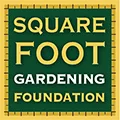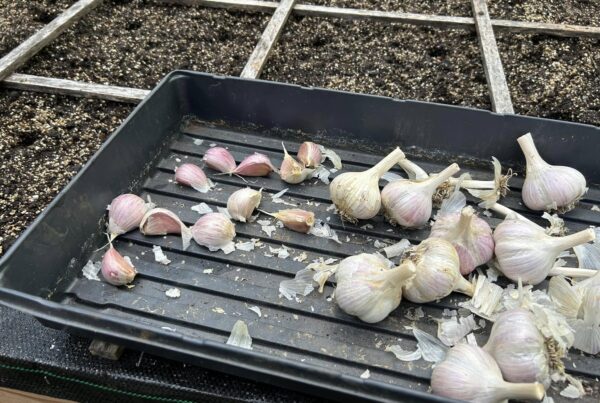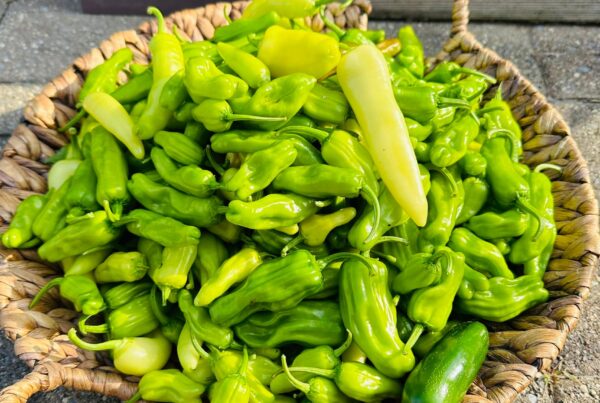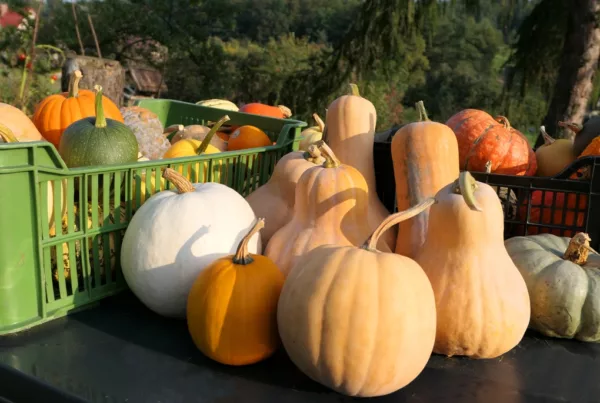Written by Nicole Holland
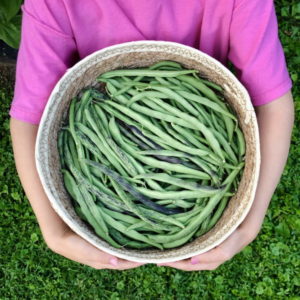 Late summer and fall harvests are some of the most rewarding gardening moments of the growing season. This is the time when your garden is probably bursting with tomatoes, peppers, okra, beans, cucumbers, and more. Knowing how to properly store and preserve your harvest lets you enjoy a delicious, organic treat during the coldest days of winter. Here are our six favorites:
Late summer and fall harvests are some of the most rewarding gardening moments of the growing season. This is the time when your garden is probably bursting with tomatoes, peppers, okra, beans, cucumbers, and more. Knowing how to properly store and preserve your harvest lets you enjoy a delicious, organic treat during the coldest days of winter. Here are our six favorites:
1. Store Vegetables Fresh
After waiting (im)patiently to harvest your fresh, homegrown produce, how long will it keep? While onions and garlic can be stored for months, other veggies like lettuce only keep for a few days. Humidity and temperature also play an important role. Check out this article to learn about short-term storage for many kinds of produce.
2. Freeze Your Homegrown Fruit and Vegetables (the Right Way)
If you are short on time with more crops than you can eat, freezing is the quickest and easiest option for long-term storage. Depending on the vegetable, your garden harvest will last in the freezer anywhere from two months to a year! Not all vegetables will freeze well; others will benefit from a quick blanch, first. Visit this page from the University of Nebraska-Lincoln for handy freezing information for your favorite SFG veggies.
3. What About Dehydrating or Drying Vegetables?
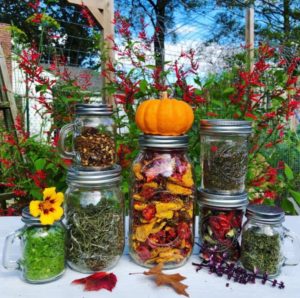 Herbs, potatoes, tomatoes, turnips – all of these and more can be dried for future meal prep. You can air dry fresh herbs and peppers by simply hanging them in a dry area with good airflow. You can also use an appliance that you most likely already own – your oven. Slice and put on a sheet pan to make “sun dried” tomatoes, oven-dried potatoes or turnips, or maybe some kale or squash veggie chips. Finally, you can speed things up a bit (and also use less energy) by using a dehydrator. It takes half the time to dry, versus an oven.
Herbs, potatoes, tomatoes, turnips – all of these and more can be dried for future meal prep. You can air dry fresh herbs and peppers by simply hanging them in a dry area with good airflow. You can also use an appliance that you most likely already own – your oven. Slice and put on a sheet pan to make “sun dried” tomatoes, oven-dried potatoes or turnips, or maybe some kale or squash veggie chips. Finally, you can speed things up a bit (and also use less energy) by using a dehydrator. It takes half the time to dry, versus an oven.
4. Quick Refrigerator Pickling
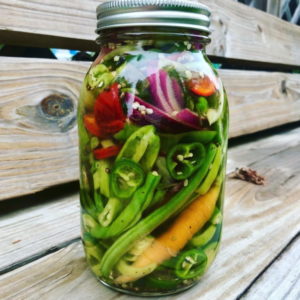 Did you know you can pickle way more than just cucumbers? Pickling is a fun and easy way to store and add flavor to just about any vegetable that you are harvesting from your Square Foot Garden. You need just a few ingredients (usually water, vinegar, sugar, and salt) and there’s no processing. Seasonings can enhance the flavor such as crushed red peppers, peppercorns, onion, garlic, dill, bay leaf, mustard seed, and coriander. What else can you pickle? Carrots, beets, peppers, beans, cauliflower and radish, to name a few. Refrigerator-pickled vegetables will store for up to 3 months.
Did you know you can pickle way more than just cucumbers? Pickling is a fun and easy way to store and add flavor to just about any vegetable that you are harvesting from your Square Foot Garden. You need just a few ingredients (usually water, vinegar, sugar, and salt) and there’s no processing. Seasonings can enhance the flavor such as crushed red peppers, peppercorns, onion, garlic, dill, bay leaf, mustard seed, and coriander. What else can you pickle? Carrots, beets, peppers, beans, cauliflower and radish, to name a few. Refrigerator-pickled vegetables will store for up to 3 months.
5. Fermenting Food from Your Garden
There’s cool science behind the process of fermentation. What is it? In short, beneficial bacteria and yeasts work together to preserve food. Humans have beneficial bacteria in our gut as well; it’s essential for digestion and nutrient absorption. So, eating fermented food puts more “good” organisms in your system (often referred to as probiotics). Fermenting at home uses a brine made from a precise ratio of salt and water – so be sure to follow your recipe. The best way to ferment food at home is to buy fermentation lids which are readily available online; they fit onto Mason jars. Find more great fermentation tips at this resource from Kansas State University.
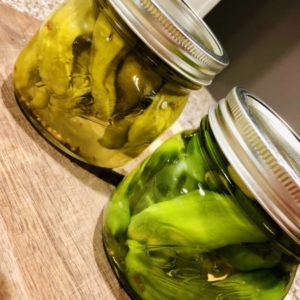 6. Canning Fruits or Vegetables, Plain or Fancy
6. Canning Fruits or Vegetables, Plain or Fancy
Canning is the most time-consuming preservation method, but it’s an excellent way to enjoy fresh garden produce months and sometimes years after your harvest. You can keep it simple and can whole or diced vegetables; you can get creative and make homemade salsa, tomato sauce, or jam. Following food safety guidelines is critical; start with the USDA’s Guide to Home Canning here. There are many online and library resources as well.
